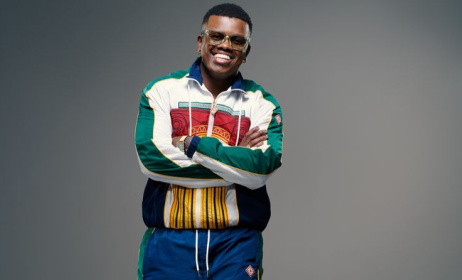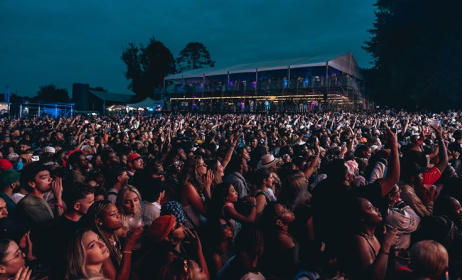Shoke Shoke: Promoting sustainability through music
Baraza Mwabe, or Bari to his friends, is a man who is certain about his abilities. A minute with him and you can tell he knows what he wants. Having worked in the sales and marketing world, words are his stock-in-trade and he can easily charm his way into any situation.
 Shoke Shoke Festival founder Baraza ‘Bari’ Mwabe.
Shoke Shoke Festival founder Baraza ‘Bari’ Mwabe.
These days he is all about changing minds, or flipping the narrative, as he likes to say. So how did he arrive here?
It all began in 2012 when Bari formed Mwanaume Ni Effort (MNE), a merchandising company in Kenya’s capital Nairobi. He was in his early 20s and the goal was to approach marketing by looking at it from the customer’s point of view to find new solutions. By 2015, the company had expanded into the events space.
“We started with things like quiz nights then moved to events of 200 to 300 people,” he says. “Then we got a chance to work with some major brands. We made mistakes, made a lot of money, and lost a lot of money.”
Post-COVID, Bari and his team decided to shake things up, which gave birth to a festival called Shoke Shoke.
“To mark 10 years of MNE, we decided to move it into a festival space. Shoke Shoke is a play on the Swahili word kesho, meaning ‘tomorrow’. Just like the word has been flipped, we are aiming to change the narrative of tomorrow by acting today. With Shoke Shoke, we were exploiting the skills we had acquired over the years. Now was the time to build and scale up events that attract thousands of people, but with sustainability as the driving agenda. We have set up Shoke Shoke as a youth sustainability brand focusing on three pillars – environment, education and entertainment. The whole idea is to educate the youth about sustainability.”
For Bari, sustainability goes beyond just the environmental aspect. “It also has to do with the decent work opportunities, gender inclusivity, poverty eradication and even access to education.”
So why entertainment and music in particular? “I feel like music is an easy, fun way to get people into serious conversations. Entertainment is such a big industry that creates a lot of opportunities. There are so many people that have to come together, for instance, for a festival to work – from the musicians, the DJs, the production team, to the security team, the people who are doing the setup and the people who are maintaining the grounds. This in itself calls for sustainable practices.”
The first Shoke Shoke Festival was held in Nairobi in March this year with Afrobeats star Ayra Starr as the headliner. Bari says the festival was a success and that’s why Shoke Shoke 2.0 is coming up soon.
“We’d like to be at the intersection of brands and initiative partners whereby we are the vessel that brings the urban youth towards sustainability and making them champions of change. A lot needs to happen at the policy level, but for us we’re bringing this together and plugging it in an organic way,” Bari says.
As such, Bari and his team will be looking not only to deliver a world-class concert but to plant sustainability seeds in the minds of festivalgoers. This will involve planting trees and using eco-friendly materials by minimising single-use plastic. Indeed, Shoke Shoke has once again teamed up with greening enterprise Miti Alliance and pledged to plant one tree for each ticket sold.
On the social front, there will be specific messages, both on- and offstage, aimed at creating awareness about pressing issues and what needs to be done.
In the run-up to the festival, Shoke Shoke has held a few online and offline activations, under the tagline Funstenance, all geared towards promoting the event and spreading the gospel of sustainability.
I ask Bari if he believes he has all this figured out. Like the sagacious 36-year-old he is, his response is as appropriate as it is reassuring: “Right now it’s a blank canvas whereby we’re just trying to figure out all the ways we can get as many people, especially the youth, to understand the concept. We don’t want to come out as know-it-alls, so we try to engage as many people as possible, from policymakers to people on the ground, and see to it that we’re all reading from the same page. That’s how I look at sustainability, both in theory and in practice.”




























Comments
Log in or register to post comments